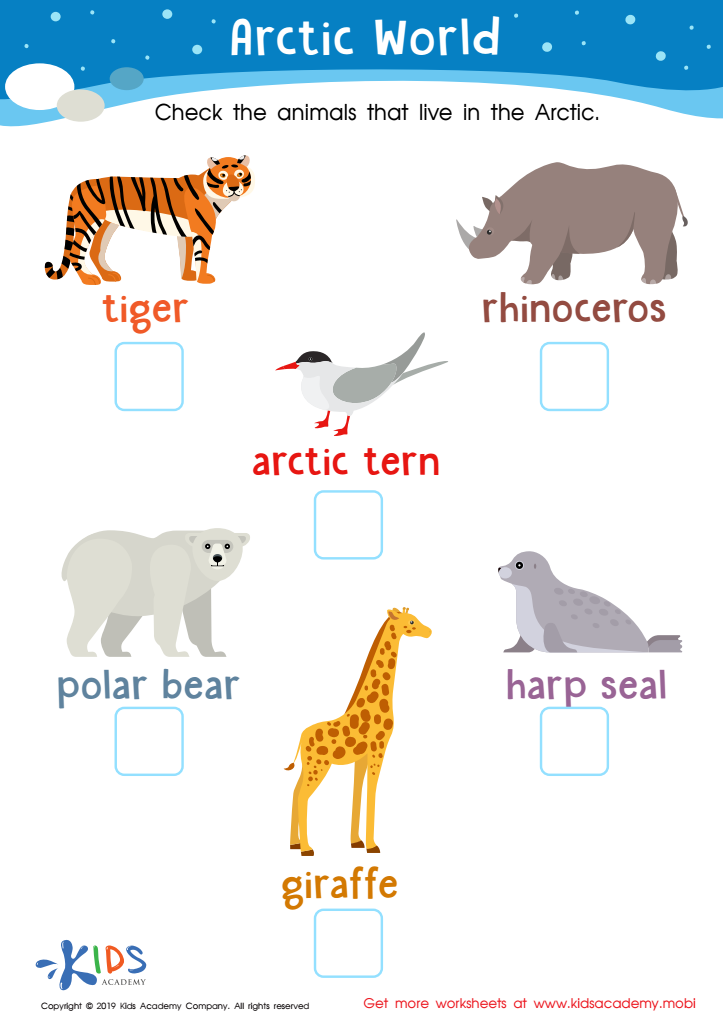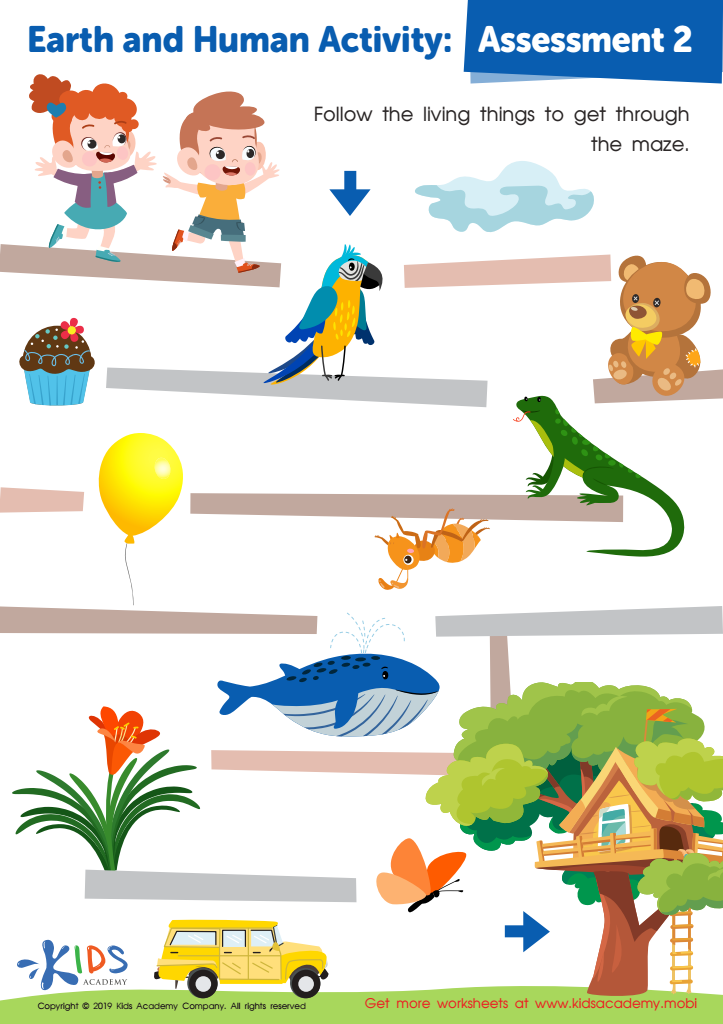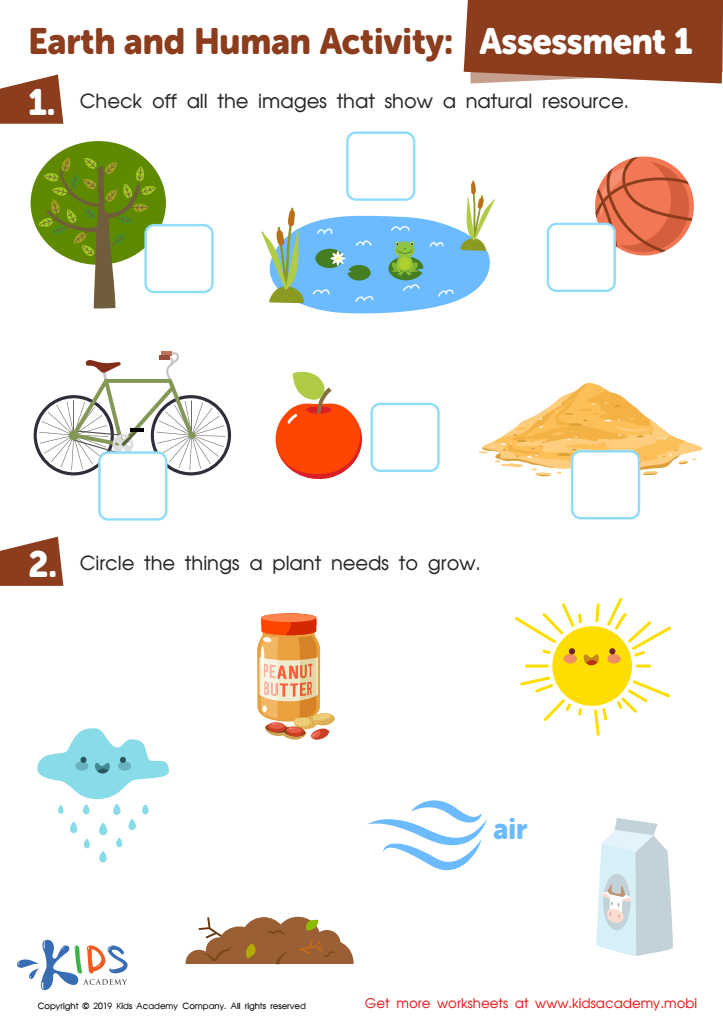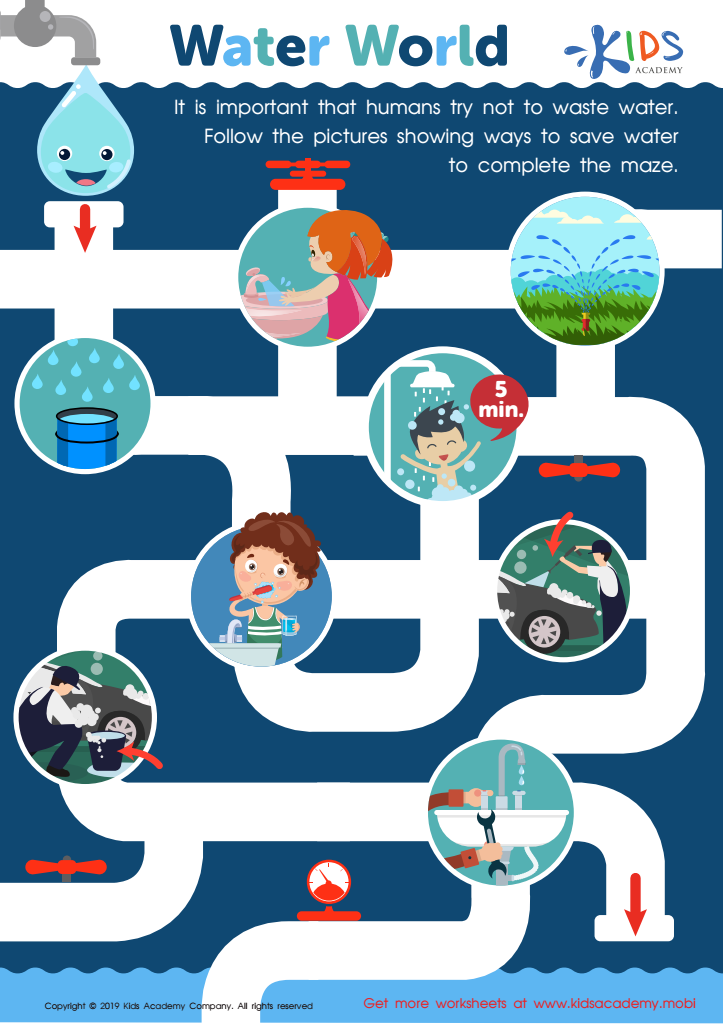Understanding ecosystems Worksheets for Ages 3-4
4 filtered results
-
From - To
Introduce your little ones to the wonders of the natural world with our "Understanding Ecosystems Worksheets for Ages 3-4." These engaging, age-appropriate worksheets are designed to help young children explore different ecosystems, discover various plants and animals, and understand the interactions within nature. Through vibrant illustrations and simple activities, kids will develop critical learning skills while fostering a love for the environment. Perfect for preschoolers, our worksheets support early educational development in a fun, hands-on way. Start your child's eco-adventure today and watch their curiosity and knowledge grow!


Arctic World Worksheet


Earth and Human Activity: Assessment 2 Worksheet


Earth and Human Activity: Assessment 1 Worksheet


Water World Worksheet
Understanding ecosystems, even at the ages of 3-4, is crucial for several reasons. Young children are naturally curious and inquisitive about the world around them. Introducing them to ecosystems fosters a sense of wonder and respect for nature early on. This early education helps create environmentally-conscious individuals who appreciate and understand the delicate balance required to maintain healthy ecosystems.
At this age, children learn best through play and exploration. By engaging them in simple activities like observing plants, insects, and small animals in the garden or park, parents and teachers can enhance their observational skills, vocabulary, and cognitive understanding. Such experiences lay the foundational knowledge for more complex scientific concepts they will encounter later in their education.
Moreover, discussing ecosystems in simple terms, such as explaining how trees provide oxygen for us to breathe, instills basic yet important environmental values. It helps children understand their role in preserving nature, teaching them the importance of empathy, responsibility, and interdependence.
Early exposure to these ideas can influence lifelong habits, such as recycling, conservation, and caring for living organisms. In essence, fostering an early understanding of ecosystems helps cultivate responsible future citizens who value and work towards a sustainable planet.
 Assign to My Students
Assign to My Students
















